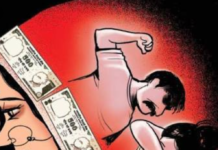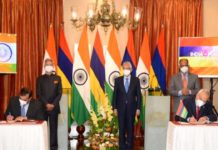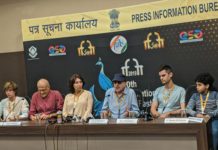The Delhi High Court on Monday wanted to know whether the issues raised before it in petitions seeking to make marital rape an offence were similar to those being heard by the Supreme Court.
 Main petition
Main petition
A Bench of Acting Chief Justice Gita Mittal and Justice C. Hari Shankar modelled the query to the parties and said it would be “highly improper” for it to continue hearing this matter after it was told that the Apex court was also hearing the marital rape issue as a whole.
“We would like to see the main petition. If the same issue is being considered by the Supreme Court, we cannot overlap,” the Bench said.
Adv. Karuna Nundy, appearing for petitioners NGO RIT Foundation and the All India Democratic Women’s Association (AIDWA), said, “The Apex court has been hearing a plea questioning the validity of a provision under the Indian Penal Code permitting a man to have physical relationship with his wife, even if she is aged between 15-18 years. But, here we have challenged the constitutionality of Section 375 [rape] of the IPC on the ground that it discriminated against married women being sexually assaulted by their husbands.”
To have clarity on the issue, the Bench sought the presence of Adv. Gaurav Aggarwal, who had appeared for the petitioner NGO, Independent Thought, argued at length. He traced the history of the statutory provisions relating to rape and sexual offences against children.
One of his main contentions was that the impugned exception violates Article 14 of the Constitution since it classifies women into two categories based on their marital status but the said classification has no reasonable nexus to the object sought to be achieved.
Intervention Pleas
The court had earlier agreed to examine the issue raised in a PIL by the Foundation, when a man and woman had sought to strike down the exception in the Indian penal law that did not consider sexual intercourse with a wife, not less than 15 years of age, as rape. It had earlier allowed two intervention applications — one in support of pleas to make marital rape an offence and the other opposing it.
The Centre had opposed the main petitions saying, “Marital rape cannot be made a criminal offence as it could become a phenomenon which may destabilise the institution of marriage and an easy tool for harassing the husbands.”
The Centre, in an affidavit filed through Central government standing counsel Monika Arora and Kushal Kumar, had said the Supreme Court and various High Courts have already observed the growing misuse of Section 498A (harassment caused to a married woman by her husband and in-laws) of the IPC.
A Bench of Justices Madan B Lokur and Deepak Gupta heard the matter for the whole day on 4th September, 2017.
Exception 2 to Section 375 states that sexual intercourse by a man with his own wife, the wife not being under fifteen years of age, is not rape.
“The said provision classifies girl children below the age of 18 years into two categories:
- namely those who are married, and
- those who are not married.
A husband can have sexual intercourse with his wife, if she is above the age of 15 years irrespective of her consent. However, for all other purposes the age of consent is 18 years.
The Petitioner submits that this classification has no rationale nexus with the object sought to be achieved. The rationale for increasing the age of consent to 18 years in 2013 [from the earlier age of 16 years- which was the age of consent since 1940] is that a girl below the age of 18 years is considered incapable of realizing the consequences of her consent; she is treated as a minor under law and, therefore, mentally and physically not mature enough to give a valid consent. Therefore, consent by a girl less than 18 years of age is no consent under law. If this is the object for increasing the age of consent to 18 years in 2013, then marriage of girl at the age of 15/16/17 years does not make the girl mature enough [mentally or physically] for the purpose of consent. Thus, the law is ex-facie discriminatory as the classification has no rational nexus with the object.”

Adv. Aggarwal argued that the fact that age of consent is 18 years is indicative of the fact that Parliament considers girls below the age of 18 years as incapable of giving consent for sex.
“Therefore, simply because some marriages in India are being performed at an age lower than 18 years, it is not a justification to lower the age of consent to as low as 15 years. Parliament cannot permit the exploitation [in the name of marriage] of a girl child simply because some girls are married at an age less than 18 years.”
Adv. Aggarwal also submitted that pregnancy at a young age can cause adverse health effects on the girl and the child and is violative of Article 15 of the Constitution.
Notably, he pointed out the contradiction between the impugned Exception under IPC and other statutes like Protection of Children from Sexual Offences Act, 2012 (POCSO), Prohibition of Child Marriage Act, 2006, Juvenile Justice (Care and Protection of Children) Act, 2000.
“All the said Acts regard a girl less than 18 years as a child. POCSO specifically bars all sexual activities with girl children below the age of 18 years and the offence is aggravated if the accused is related through marriage. In its attempt to protect status quo, Parliament has chosen not to increase the age of consent in case of a married girl from 15 to 18 years thereby impinging on the Fundamental Rights of the girl child. If a girl is not mentally and physically fit to give consent till she reaches 18 years, her marriage at age of 15 years or 16 years or 17 years does not change the situation.” The Bench was particularly responsive to this argument.
“Even if a person gets away under IPC, can he get away under POCSO”, asked Justice Madan B Lokur.
“That is precisely why we are here. Marriage is not an exception under POCSO. But State authorities do not take action under POCSO too if the girl is married”, replied Agrawal.
Adv. Aggarwal also submitted that there was no scientific basis or application of mind while determining the age of 15 as benchmark and it was done arbitrarily. Citing the Triple Talaq judgment, he submitted that the law should be struck down on the ground of arbitrariness.
During the course of the hearing, Agrawal also made it clear that the challenge is only to Exception 2 to Section 375, which exempts marital rape of children and that the petitioner is not raising the issue of marital rape in general.
The matter remains partly heard and will resume on September 5.






















